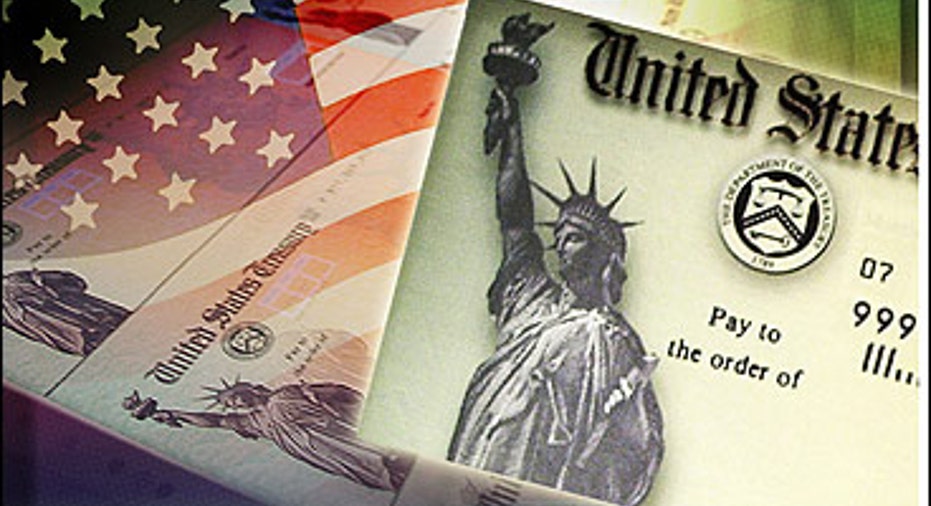A Quick Tax History: How Did We get Here?

Its important to have a baseline from which to measure progress and understand comparatively where things stand, whether it is of a financial, physical or mental nature. And so is the case with our five million-plus word tax code. Im inclined to call it: How the heck did we get here?
So I did a little study.
Once upon a time, long, long ago only the top earners in this country paid income taxes. In fact, in 1939 only four million Americans (out of approximately 135 million) paid into the system. And no income tax was withheld from wages. Instead, Americans would compute their tax liabilities, complete the forms and mail the amount due to the government once a year on April 15.
America needed to raise money once it became involved in World War II and instead of announcing an increase to the tax rate, Congress, in 1942, used a pumped up psychological approach with a patriotic spin by enacting a Victory Tax. When it comes to compliance, wording is everything. This was a 5% increase across the board levied on anyone making more than $624 per year capital gains excluded.
Congress also announced that federal income taxes would now be withheld from wages. Instead of paying after the fact, folks were expected to prepay their liabilities. This created quite a stir; no one was used to Uncle Sams fingers dipping into their pockets in this manner. Having to prepay current year taxes as well as come up with the prior year liability all at once was an expensive double whammy. Congress took a lot of heat about it and began to worry. They wondered how to get people to accept the new withholding. They also probably wondered how to quell a rebellion. So after due consideration, Congress forgave everyone their 1941 income tax liabilities. Boy did that settle down the troops. That quick fix made possible the new regime of payroll tax withholding that we take for granted today.
I bet a lot of business owners were still ticked off, however. As unpaid tax collectors for the federal government, they became responsible for collecting and turning over tax revenues. This involved more math, more paperwork and more government involvement in their daily activities. Today, businesses spend thousands per year on payroll processing and payroll tax reporting.
But if it werent for withholding, would there be compliance? Check out these facts from the Economic History Association: By 1945, 43 million Americans were paying income tax up from 4 million in 1939. Tax revenues rose from $8.7 billion in 1941 to $45 billion in 1945. I doubt that many more folks joined the work force.
According to the Center on Budget and Policy Priorities, during that same period, federal tax revenue rose from approximately 5.6% of GDP to more than 15%. And the tax rates rose to 23% for those earning as little as $500 per year up to 94% for those lucky enough to make more than $1 million per year with the average rate running around 20.9%.
You might say that rates as high as those levied in the 1940s were due to the war. When the income tax was first enacted in 1913, the rates ran from only 1% to 6% maximum. As WWI peaked in 1918, the rates rose to 77%.
Compare that to todays rates that run from 10% to 35% for individuals. And compare that to our reverse welfare system the Earned Income Tax Credit, where approximately 47% of American citizens pay no income taxes. Many of these claim the Earned Income Tax Credit (EITC) and receive up to $5,666 from the government. According to the latest statistics (gathered from 2009 income tax returns), more than 25 million people claimed more than $57 billion in EITC benefits.
I bet you did not realize that the income tax rates we enjoy today are among the lowest in the history of this nation. Yet while we enjoy lower rates, we certainly have to tolerate more complexity. The latest ONESOURCE Indirect Tax Report from Thomson Reuters states that there were a total of 184 U.S tax code changes during the second quarter of this year. And 86% of these were either tax increases or new taxes. Hey, I dont mind paying taxes paying my dues to be a member of this great nation - but come on, thats just crazy!
Dear Mr. President, IRS regulations will turn us into a nation of bookkeepers. The life of every citizen is becoming a business. This, it seems to me, is one of the worst interpretations of the meaning of human life history has ever seen. Mans life is not a business. Saul Bellow, Herzog, 1964
Bonnie Lee is an Enrolled Agent admitted to practice and representing taxpayers in all fifty states at all levels within the Internal Revenue Service. She is the owner of Taxpertise in Sonoma, CA and the author of Entrepreneur Press book, Taxpertise, The Complete Book of Dirty Little Secrets and Hidden Deductions for Small Business that the IRS Doesn't Want You to Know, available at all major booksellers. Follow Bonnie Lee on Twitter at BLTaxpertise and at Facebook.



















